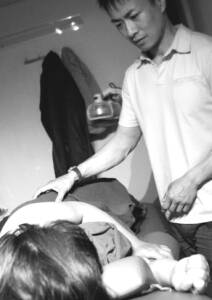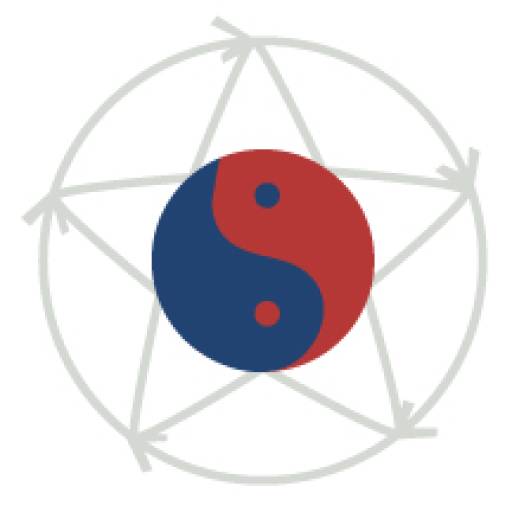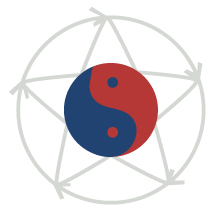The Art of Conception: Everything you need to know now about the fertility treatments that work.

Posted on September 23, 2006
by Heather Thompson
The Holistic Approach
A reproductive endocrinology and infertility specialist, such as Dr. Schriock, isn’t the only expert who can help you get pregnant. More people are turning to traditional Chinese practices, such as acupuncture and acupressure, for assistance. Acupuncture is one of the oldest and most established healing practices in the world, and many experts believe that, when used in conjunction with Western medicine, it increases a woman’s chances of becoming pregnant by 15 to 20 percent.
On the forefront of this approach is Dr. Angela C. Wu, founder and president of Wu’s Healing Center (wushealingcenter.com) in the Richmond District, whose book, Fertility Wisdom, will be published by Rodale this month. Dr. Wu treats a patient from several months before conception to several months after childbirth. “Think of the body as a garden,” she says. “You must first get rid of the weeds before you plant the seed. You must plant when conditions are optimal for the seed to flourish. I help prepare the garden for planting, and I tend to the seed after it grows.”
During the preconception stage (which lasts about three to six months), she practices acupressure and acupuncture on both the prospective mother and father, and asks them to adhere to a strict diet of specific foods and herbal remedies, and even alter aspects of their lifestyle. Not everyone is prepared for the commitment this involves. “I had to give up my favorite foods, take herbs I’d never heard of, have needles stuck in me on a weekly basis,” says a 43-year-old Berkeley woman who wishes to remain anonymous, “but I followed her regimen and became pregnant in five months, after several doctors had told me there was no hope. Now I can’t say enough good things about her practice.”
Once a woman becomes pregnant, Dr. Wu continues the acupuncture and acupressure treat-ments, mostly during the first trimester. She insists that a particular method of acupressure reduces swollen and bloated limbs in the mother and results in fewer instances of jaundice in the baby after birth.
After the baby has been delivered, Dr. Wu prescribes a combination of herbs to help speed recovery time and cleanse the blood. She also recommends coming in upon leaving the hospital, as postpartum treatments will strengthen the reproductive organs, which may have weakened over the course of the pregnancy and delivery. She performs an acupressure treatment called an “uplift,” which is essentially a lifting of the uterus. “Your body is like a building,” she explains. “The uterus is the base. After you give birth, the base of the building is weak. We must strengthen and lift the foundation back into place.” In doing so, she claims, a mother will eliminate the possibility of postpartum depression and ready herself for future pregnancies.
Dr. Wu believes that when a woman has a difficult time conceiving, her best solution is to combine both Western and Eastern practices. “Often I help women conceive naturally, but when this is not possible, traditional Chinese medicine improves the effectiveness of Western ARTs, and minimizes the difficulties of pregnancy and childbirth.” Dr. Schriock agrees: “Half of our patients, maybe even more, use some form of Eastern treatment. In fact, belief in this technique is so strong, some of our patients head straight to a Chinese doctor for acupuncture immediately after undergoing IVF.”

She received her degree in Traditional Chinese Medicine in China and subsequently worked at various medical clinics there before coming to the United States in 1976. She started her clinic on Clement Street in 1979, and in 1981 began to specialize in fertility issues. She has served on numerous state and federal committees.
In her book, “Fertility Wisdom,” released in 2006, Wu writes that in 2005 alone, her clinic helped 79 women with fertility problems become pregnant, 39 with support from Western reproductive technologies and 40 naturally.
“Many of these women wondered if they would ever conceive at all,” she said.
Wu asserts that clients who adhere to her concepts – which include a mix of acupuncture, acupressure, herbs, and meditation – increase their chances of full-term pregnancy.
“If we tend our bodies, minds and spirits with an awareness of the laws of nature, we improve our chances of welcoming the gifts of Quan Yin, the fertility goddess,” she said.
Her regimen starts with practicing acupressure and acupuncture on both the prospective mother and father in the preconception stage and requires that they adhere to a strict diet of specific foods and herbal remedies. Once the woman becomes pregnant, she continues the treatments during the first trimester. After the baby is delivered, a combination of herbs and acupressure is prescribed to help speed recovery, prevent post-partum depression and strengthen the body.
“They have more energy, vitality and suffer fewer mood swings, and their babies are calmer, have more regular sleep patterns and fewer health problems,” she said.
In a bow to the skeptics, Dr. Victor Fujimoto, a reproductive specialist, conceded in the preface of Wu’s book that it can be challenging to merge Western and Eastern mindsets.
“There are things that Western science simply cannot explain,” Fujimoto said.
During a session at Wu’s Healing Center, Devin Wu, L.Ac., P.T., asks Kim Phan, 40, about her hip pain. Phan is pregnant with her first child, conceived after she joined the clinic’s “Welcome Babies” fertility treatment. Wu, the son of the clinic’s founder, Angela Wu, uses a fusion of western and eastern methods in his practice.




